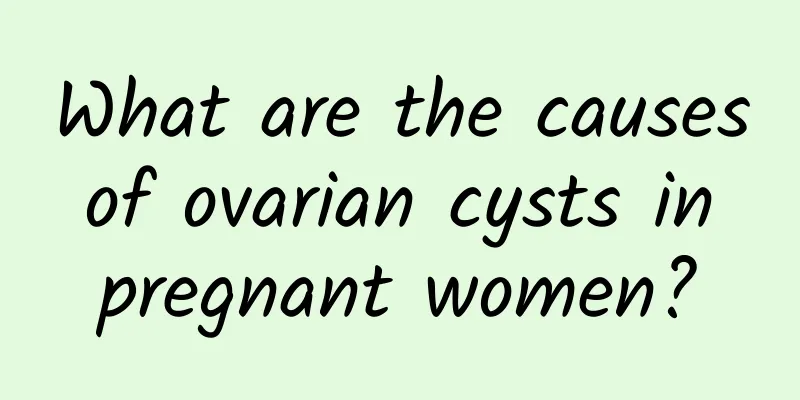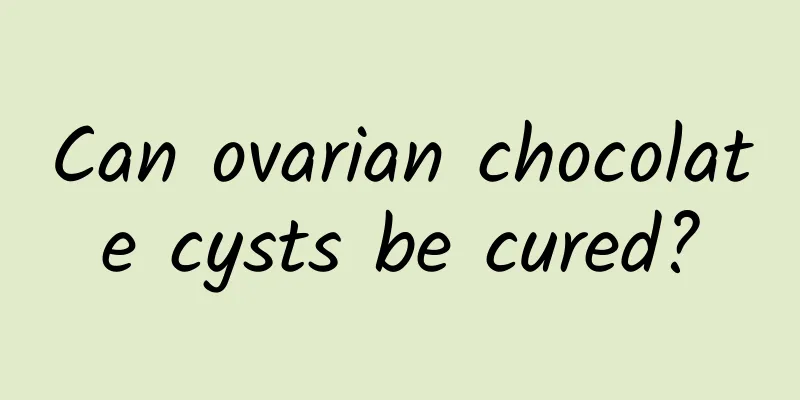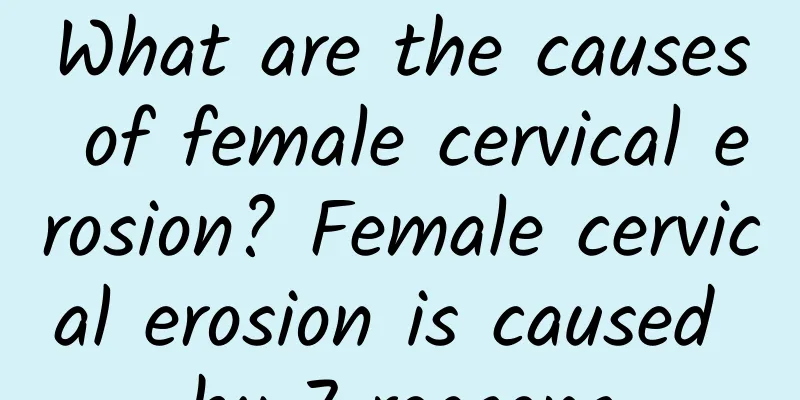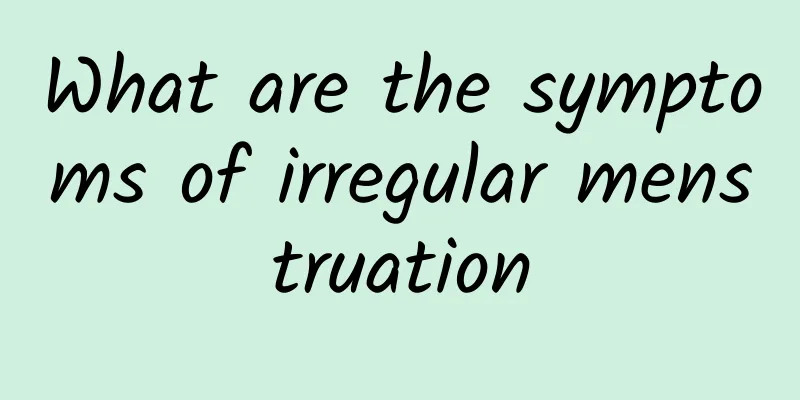Uterine adhesions look like menstruation

|
Intrauterine adhesions may cause spotty menstruation or a reduced menstrual flow. Knowing the symptoms can help identify the problem early. 1. Menstrual changes Menstrual changes caused by intrauterine adhesions may manifest as a period that is long lasting, meaning that the menstrual flow is longer than usual and erratic. Some people find that the menstrual flow is significantly reduced. These changes can be confusing and even unsettling because they disrupt the body's regular rhythm. 2. No obvious symptoms It is worth noting that intrauterine adhesions are not always accompanied by obvious symptoms. Many women may not be aware of this problem at all in their daily lives. Because of this, many women only realize the existence of intrauterine adhesions when they are trying to get pregnant, as it may lead to infertility. 3. Diagnostic methods An effective way to diagnose intrauterine adhesions is through hysteroscopy. This examination uses a small mirror to enter the uterine cavity, which can directly observe the adhesion bands and structural defects of the uterine cavity. This method not only helps to confirm the diagnosis, but also allows treatment and separation of adhesions during the same process. 4. Treatment and management Once intrauterine adhesions are diagnosed, treatment usually involves surgery to separate the adhesions. After surgery, your doctor may recommend hormone therapy to help the uterine lining recover. Regular follow-up and reexamination are also an important part of managing this problem to ensure that adhesions do not recur. 5. Lifestyle advice Maintaining a healthy lifestyle is also important when dealing with intrauterine adhesions. A balanced diet, moderate exercise, and a good mental state all contribute to physical recovery and overall health. Regular medical checkups are also key to prevention and early detection of problems. 6. Psychological support In the face of intrauterine adhesions and the infertility they may cause, psychological support is equally important. Communicating with family and friends, or seeking professional psychological counseling, can help relieve stress and anxiety. Hopefully, this information will help you better understand intrauterine adhesions and their effects. If you have any questions or concerns, it is recommended that you consult a professional who can provide more personalized advice and treatment options. |
<<: How to get rid of ovarian chocolate cyst
>>: What are the signs of ectopic pregnancy?
Recommend
What is intramural uterine fibroids? How to treat intramural uterine fibroids?
Uterine fibroids must pay attention to rest, do n...
Jolin Tsai and Fang Siyu both love it~7 reasons why a female bodybuilder must do squats
If you want to exercise your lower body muscles, ...
Golden power! Lily celery and lean meat soup reduces edema and helps you lose weight
Daylily has many uses. Not only can it be used fo...
Trichomonas vaginitis details
Many female friends will experience this phenomen...
TCM's understanding of the causes of vaginitis
Traditional Chinese medicine believes that vagini...
How to prevent amenorrhea in women
Every woman hopes to postpone her menopause becau...
Is vaginal discharge abnormal?
Vaginal candidiasis can cause abnormal vaginal di...
What are the main causes of cervical erosion? What are the 4 high-risk causes of cervical erosion?
Cervical erosion is a very common gynecological d...
What are the best drugs for treating vulvar leukoplakia?
Which drugs are better for treating vulvar leukop...
What are the symptoms of moderate cervical erosion?
Cervical erosion is generally divided into three ...
Lee knife cervical erosion price, Lee knife treatment of cervical erosion cost and method
For female friends, cervical erosion is really a ...
What are the gynecological diseases with similar symptoms to uterine fibroids? What are the symptoms of uterine hypertrophy?
Uterine fibroids are the most common gynecologica...
How to treat female cervical erosion effectively? Complete treatment methods for female cervical erosion
Drug treatment: Drug treatment is mainly suitable...
Prevention of ovarian cysts
Ovarian cysts bring great troubles to the lives a...
What are the changes in menstruation before menopause?
The main manifestations of menstrual changes befo...









